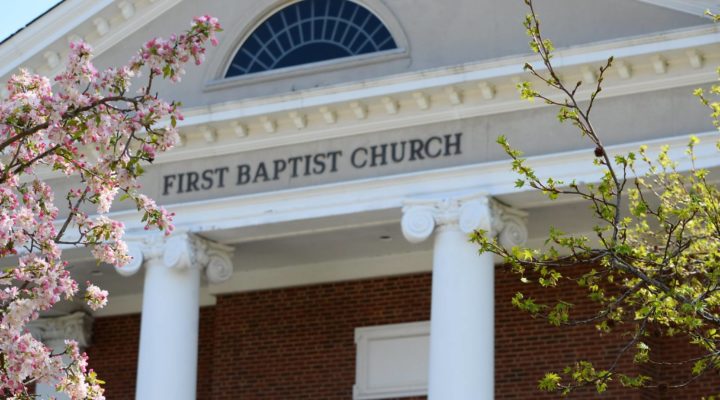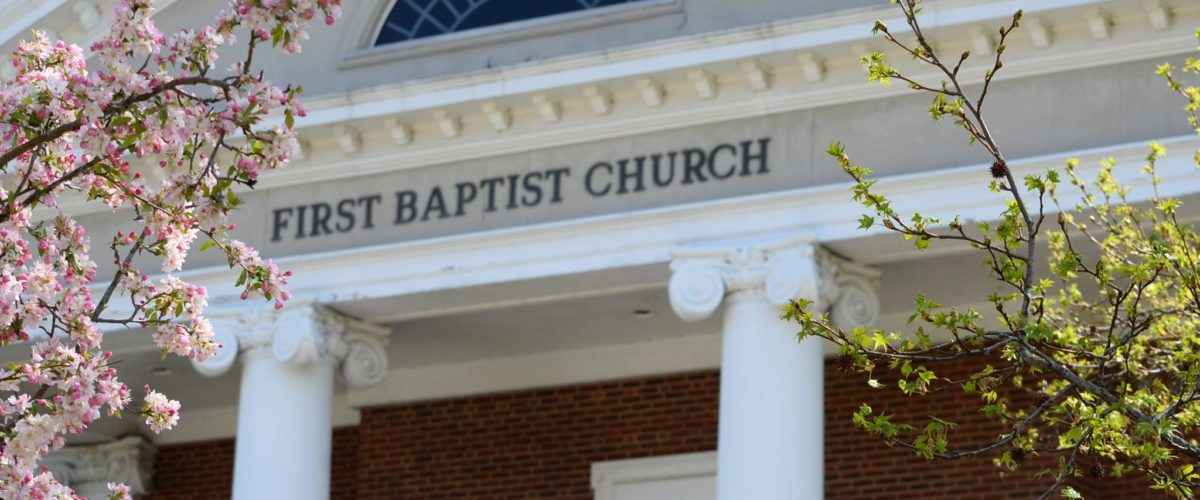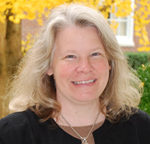More than 850 Baptists from 390 churches in Tennessee debated 15 minutes before voting overwhelmingly Nov. 14 to shun a historic east Tennessee congregation for calling a woman as senior pastor.
Tim Fields, a member of Immanuel Baptist Church in Nashville, Tenn., opened discussion by urging defeat of a committee’s recommendation to deny seating at the annual meeting of the 3,000-church affiliate of the Southern Baptist Convention to messengers from First Baptist Church in Jefferson City, Tenn., “on the grounds that the pastor of this church is a woman.”
Fields, a veteran Baptist communicator who worked for Southern Baptist Convention agencies and Baptist-related causes throughout his career, reminded fellow messengers that the members of the Jefferson City church who voted in June to call the Rev. Ellen Di Giosia as First Baptist’s 32nd pastor “are also products of the Southern Baptist Convention and Tennessee Baptists.”
Tambi Swiney, associate pastor at Immanuel Baptist Church, said she is “grateful to serve in a congregation that values the gifts and graces of men and women” and “teaches its sons and daughters that they are capable of discerning God’s call.”
“During a time when we need all hands on deck to work together to share the love of Christ and to advance the kingdom of God on earth, why would this convention seek to exclude a willing partner?” she asked.
Swiney, ordained by Immanuel Baptist Church as a minister in 2010, said as someone with a spiritual journey and sense of calling “profoundly shaped by my experiences” with Tennessee Woman’s Missionary Union, “it grieves me deeply that the messengers are even being asked to consider this recommendation.”
Frank Bowling, pastor of First Baptist Church in Medina, Tenn., said the question on the floor was not about the dignity and worth of women but rather the autonomy of Baptist state conventions, as well as local churches, to determine their own standards for ministry and cooperation.
“Our convention has spoken clearly, though not unanimously, a number of times related to our confessional statement and understandings of who we are,” Bowling said. That includes affirmation of the Baptist Faith and Message doctrinal statement as amended by the Southern Baptist Convention in 2000, which states “while both men and women are gifted for service in the church, the office of pastor is limited to men as qualified by Scripture.”
“We seek to align ourselves with the clear teaching of Scripture,” Bowling said.
Kelly Moreland Jones, a messenger from First Baptist Church in Nashville, Tenn., said while cooperating with the Tennessee convention, her church affirms an earlier version of the Baptist Faith and Message adopted by the national body in 1963 that does not include the prohibition on female pastors.
Before deciding “whether women should be entrusted as senior pastor,” she said Southern Baptists in Tennessee would do well to consider their denomination’s “progression with regard to slavery and racism.”
“When slavery was contested, proof texts were invoked to support slavery as the God-ordained order for man,” said Jones, part of a cohort of women pursing the master of divinity degree in Nashville through Central Baptist Theological Seminary’s Women’s Leadership Initiative. “Our forebears’ response to the brutality of slavery was to insist on separate churches and Sunday schools for enslaved people.”
“It didn’t occur to them that the institution of slavery was anti-Christian, but we know and accept today that it was,” she continued. “Perhaps they were asking the wrong questions. Perhaps what they should have asked is what Jesus would have them to do.”
Quoting language from a 2015 Southern Baptist Convention resolution denouncing racism as a sin, Jones observed that “sexism also disregards the image of God in all people and denies the truth of the gospel that believers all are one in Christ.”
Chris King, pastor of Hickory Grove Baptist Church in Huntland, Tenn., said Tennessee Baptists “live in a nation and a world where compromise has become the norm for pretty much everybody.”
“If we seek to further the cause of Christ by compromising his word, the only place we’re going to get is destruction,” he said. “All we will have is more compromise to look forward to.”
“It starts with this one little issue that seems little to some and huge to others,” King warned, but “it will lead to even greater and more horrific compromises including the ordaining of homosexuals, including the marriage of homosexuals and other things.”
After a motion to cut off debate by Kevin Shrum, lead pastor of Inglewood Baptist Church in Nashville, messengers voted by a show of ballots to end the convention’s relationship with First Baptist Church in Jefferson City.
Following the vote, leaders of First Baptist Church released a statement acknowledging the congregation organized in the 1830s, before there was a Southern Baptist Convention, is no longer at home with Southern Baptists in Tennessee.
“While the outcome saddens us, it’s fair to say that we are not surprised,” the statement said. “Our congregation’s long-held conviction that God calls all people into service regardless of gender has not always been received well, even by some brothers and sisters in Christ.”
Congregational leaders said they are encouraged by “a tremendous outpouring of support” from both Baptists and non-Baptists from Tennessee and around the country since news stories about their potential ouster started making the rounds in recent weeks.
“Although one of our Baptist affiliations has changed, FBC Jefferson City is the same congregation we were yesterday,” the statement said. “We will still gather to worship, study, and pray. We will still nurture children and youth in the way of Jesus. We will still serve our community and partner with those who further the work of God’s kingdom throughout the world. We will still proclaim the name of Jesus to the best of our abilities. Thanks be to God for those opportunities.”
Previous story:



